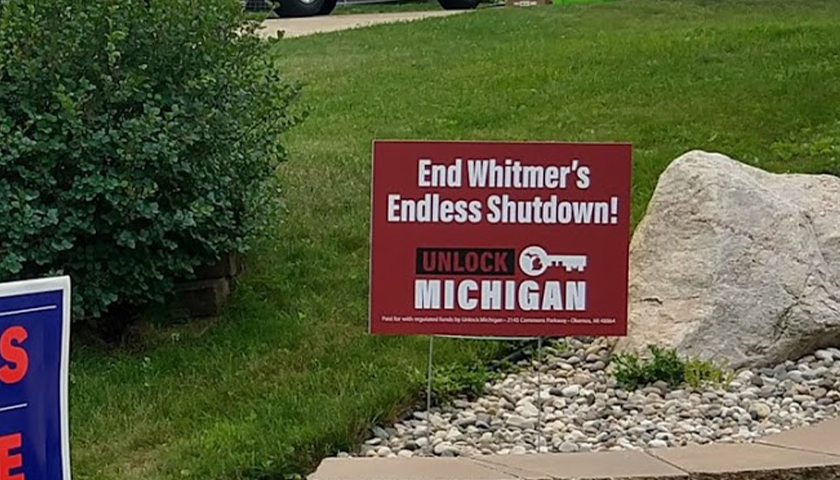by Scott McClallen
The Michigan Supreme Court ruled Friday the Board of State Canvassers must certify the Unlock Michigan petition to remove Gov. Gretchen Whitmer’s 1945 emergency powers.
In April, the Board of State Canvassers deadlocked 2-2 three times on votes whether to certify or investigate further Unlock Michigan.
“In the present case, the Board approved the form and content of the petition in July 2020,” the state’s top court wrote. “The Bureau of Elections analyzed the signatures using a random sampling method and estimated that Unlock Michigan submitted at least 460,000 valid signatures when they only needed about 340,000. The Board rejected, by deadlocked vote, a motion to investigate the collection of signatures. The Board thus has a clear legal duty to certify the petition.”
Unlock Michigan spokesperson Fred Wszolek celebrated the news.
“The court has it exactly right: the Board of State Canvassers had a clear legal duty to certify what was obvious, that we had collected far more signatures than required,” Wszolek told The Center Square in a text message. “We urge the Michigan House and Senate to act promptly to finally strike this awful law from the books forever. Governor Whitmer used this law recklessly to crush businesses, families and lives. No Governor should be able to do so ever again.”
Unlock Michigan took 80 days to collect 460,000 valid signatures, but it has taken nearly double that time frame to certify the petition because of multiple delays, including the 2020 election.
The petition dates back to early in the COVID-19 pandemic when Whitmer issued far-reaching orders to slow the spread of COVID-19, including criminalizing operating motorboats, traveling to a second home, and deeming landscapers and barbers “nonessential” work.
On April 15, 2020, thousands of people flooded Lansing to protest what they saw as government overreach. Business owners told The Center Square the orders were bankrupting businesses.
On Oct. 2, The Michigan Supreme Court tossed many of Whitmer’s executive orders but split 4-3 on whether the 1945 Emergency Powers of the Governor Act “is an unlawful delegation of legislative power to the executive branch in violation of the Michigan Constitution.”
The court ruled that any executive orders issued after April 30 “lack any basis under Michigan law.”
“The Governor did not possess the authority to exercise emergency powers under the EPGA because the act unlawfully delegates legislative power to the executive branch in violation of the Michigan Constitution,” the top court wrote.
The Legislature has a 40-day time frame to vote on the petition it once received.
House Speaker Jason Wentworth, R-Clare, welcomed the news.
“The Supreme Court rightfully decided in 2020 that the governor’s use of this outdated law to shut down the state was always unconstitutional. Michigan workers never should have been laid off. Children never should have had their education stolen from them. And critical state services never should have been cut off. Today’s ruling finally gives us the opportunity to do the right thing and take this law off the books so no one can ever abuse it again. The House will act as soon we receive the petitions to get this done and uphold the will of the people we serve.”
Wentworth said the Legislature will act quickly to repeal the 1945 law.
– – –
Scott McClallen is a staff writer covering Michigan and Minnesota for The Center Square. A graduate of Hillsdale College, his work has appeared on Forbes.com and FEE.org. Previously, he worked as a financial analyst at Pepsi.
Photo “Unlock Michigan yard sign” by Kches16414 CC 4.0.








